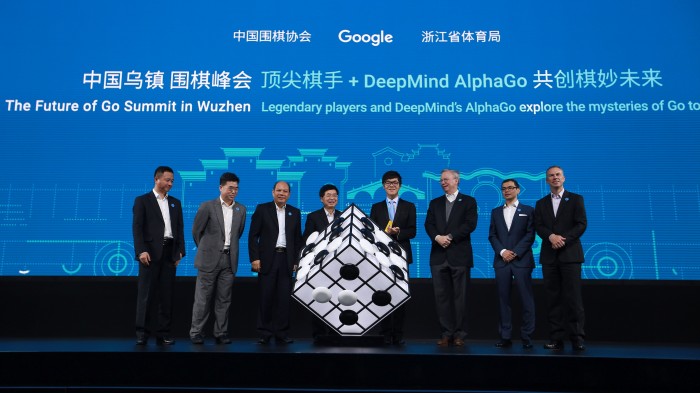China’s Go Masters and Researchers Are Optimistic about the Country’s AI Future

After AlphaGo’s historic victory against South Korean grandmaster Lee Sedol in March 2016, Go teacher Jianlun Qian felt a sense of impending crisis. He fretted about the demise of the game brought about by AI.
Now that a more powerful AlphaGo has beaten the world’s number one player, though, Qian feels differently. At DeepMind’s Go summit in Wuzhen last week, Qian, a teacher at the local Go association’s training center, contemplated a very different future in which humans and AI can complement each other.
“I’m indifferent to the results now,” said Qian, who coaches about 50 preschoolers in Wuzhen. “Instead, I think about how to use AI to help us.”
After defeating Ke Jie, AlphaGo played alongside several top Go players in a number of cooperative human-and-machine matches. These games—and Qian’s change of mentality—reflect the summit’s perceived significance for China’s booming AI scene.
Earlier this year, AI became the latest component in the national scientific and technological innovation strategy China has planned until 2030. The Chinese government has pledged to invest about $15 billion in the AI industry by 2018. The Chinese Association for Artificial Intelligence, meanwhile, is pushing for a higher academic status for AI courses such as machine learning and computer vision, which today are often nestled within computer science departments.
Online courses have sprouted up to meet the demand for these lessons. For $131, anyone interested can take a class in deep learning—the AI approach that powers AlphaGo—offered by a Beijing-based company called ChinaHadoop. At Tsinghua University, a machine-learning course is capped at 60 students, but sometimes as many as 120 students show up, says Jie Tang, an associate professor there who studies machine learning and data mining.
The summit will “trigger a new round of thinking and discussion regarding AI,” in China, adds Minlie Huang, an associate professor at Tsinghua University who specializes in deep learning and natural-language processing.
Huang stresses the need to focus more on fundamental research in AI, which requires long-term planning, rather than rushing into whatever AI application is currently popular. He says that AI still has a long way to go in terms of mastering language, for example. Progress on this challenge will make AI more truly intelligent and more useful. “It’s inevitable that [humans and machines] will complement each other,” he says.
The summit may also be a preview of sorts for how AI research is likely to progress. Tang predicts that collaboration between AI researchers in academia and in industry will deepen. There may also be a rise in research on how humans and AI algorithms can collaborate more effectively.
Even for Qian, the Go teacher, the impact of AlphaGo extends beyond the game. “The program was not developed just to play Go,” he says. “It will change many things in life.”
Keep Reading
Most Popular
Large language models can do jaw-dropping things. But nobody knows exactly why.
And that's a problem. Figuring it out is one of the biggest scientific puzzles of our time and a crucial step towards controlling more powerful future models.
How scientists traced a mysterious covid case back to six toilets
When wastewater surveillance turns into a hunt for a single infected individual, the ethics get tricky.
The problem with plug-in hybrids? Their drivers.
Plug-in hybrids are often sold as a transition to EVs, but new data from Europe shows we’re still underestimating the emissions they produce.
Stay connected
Get the latest updates from
MIT Technology Review
Discover special offers, top stories, upcoming events, and more.